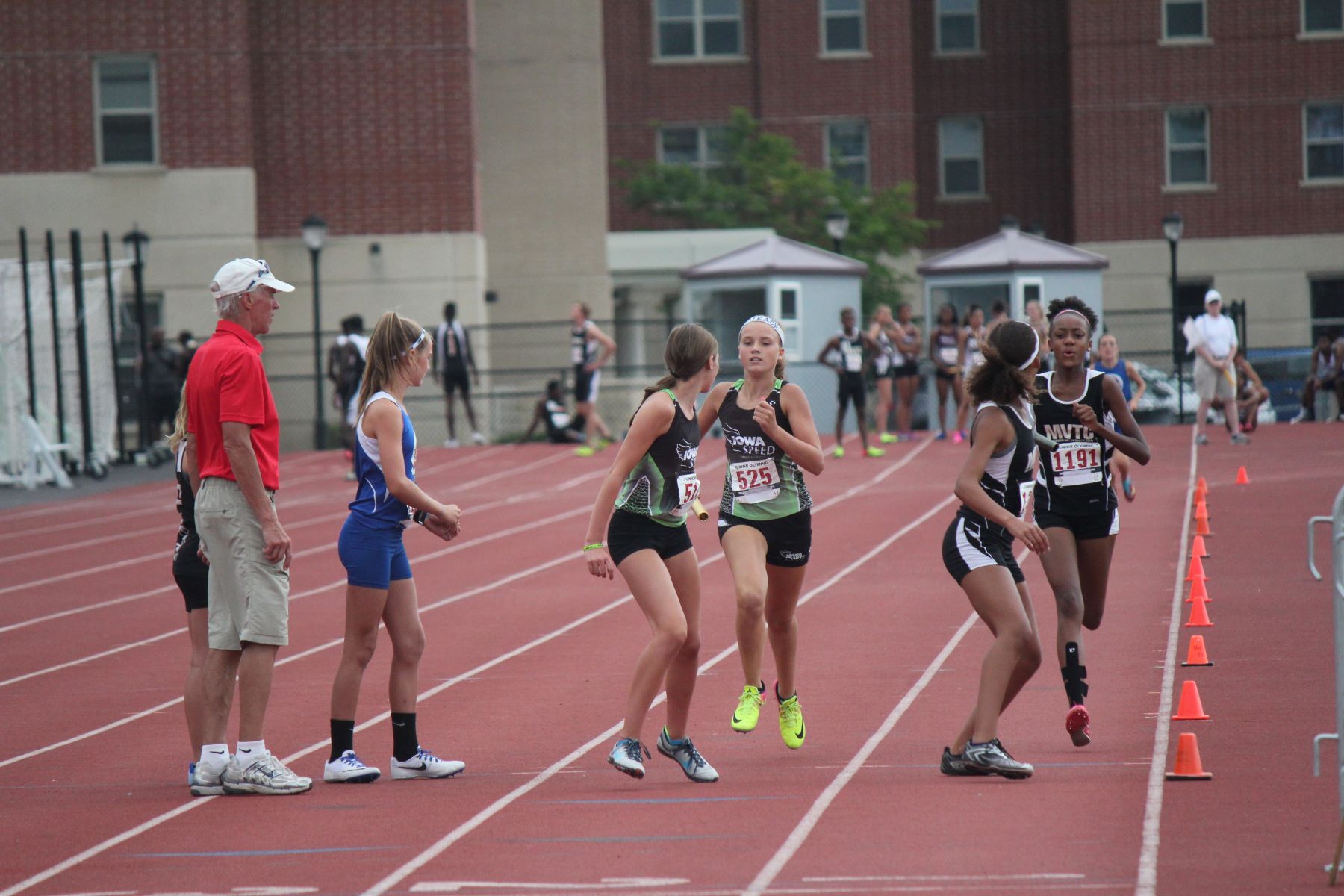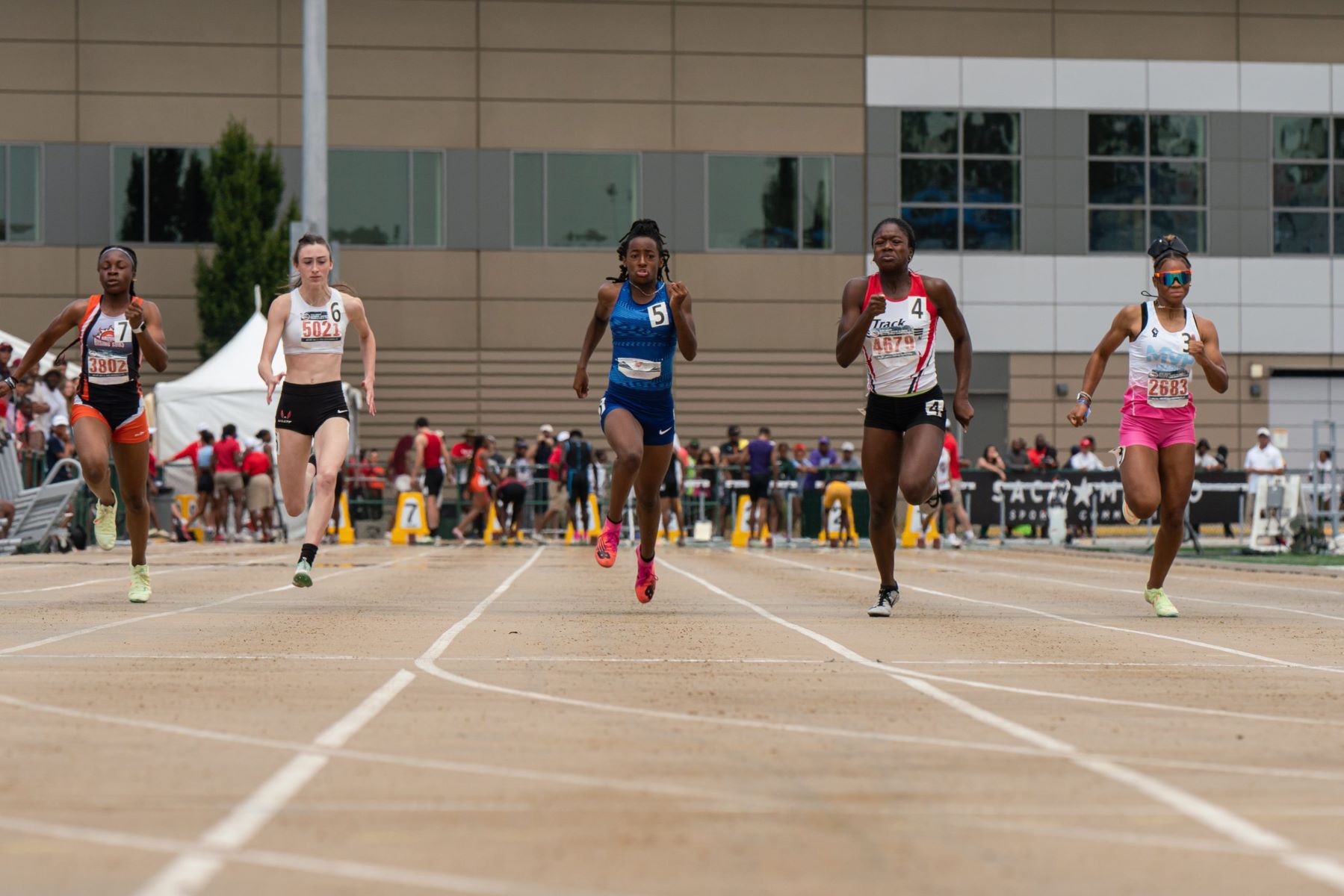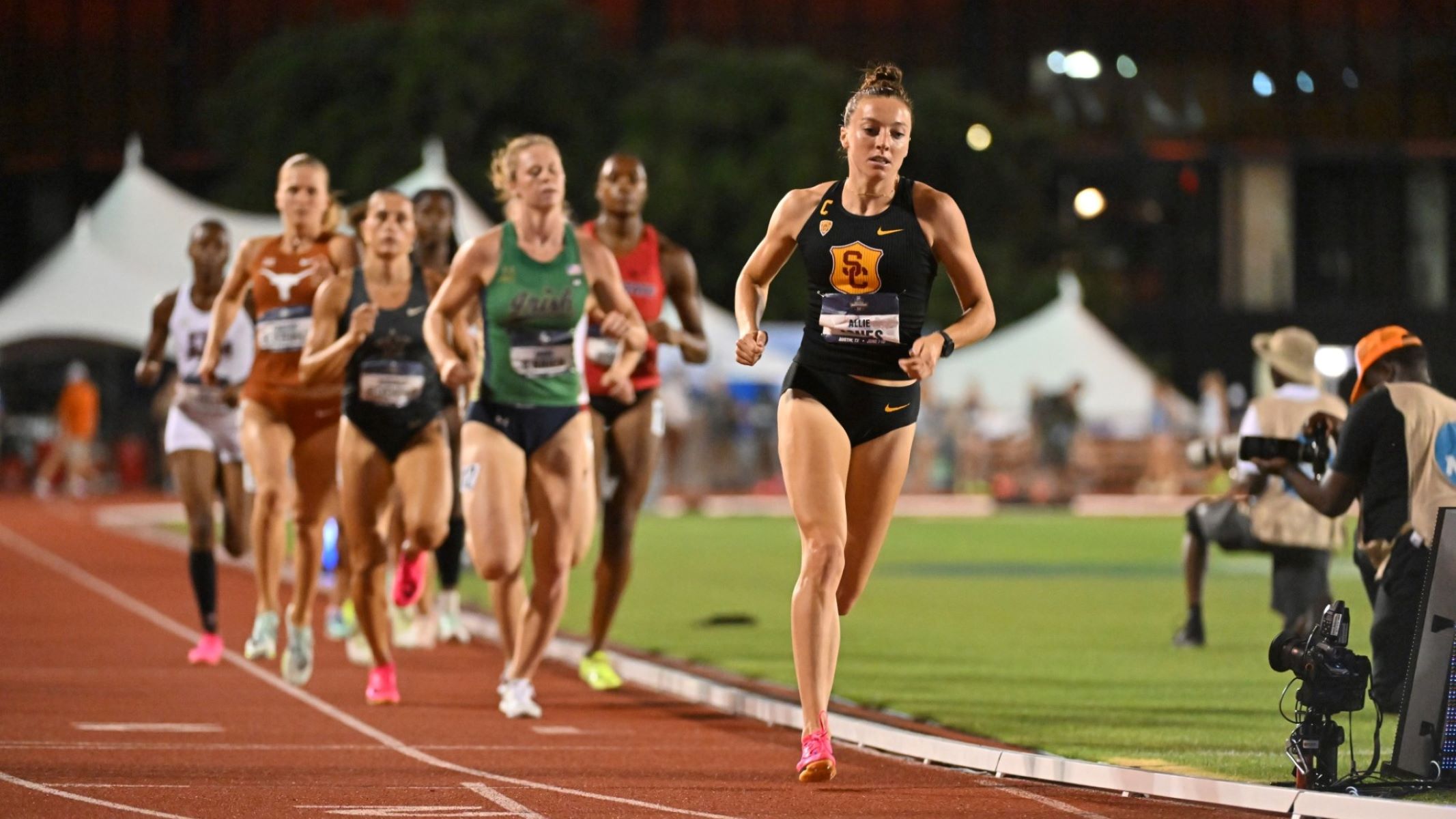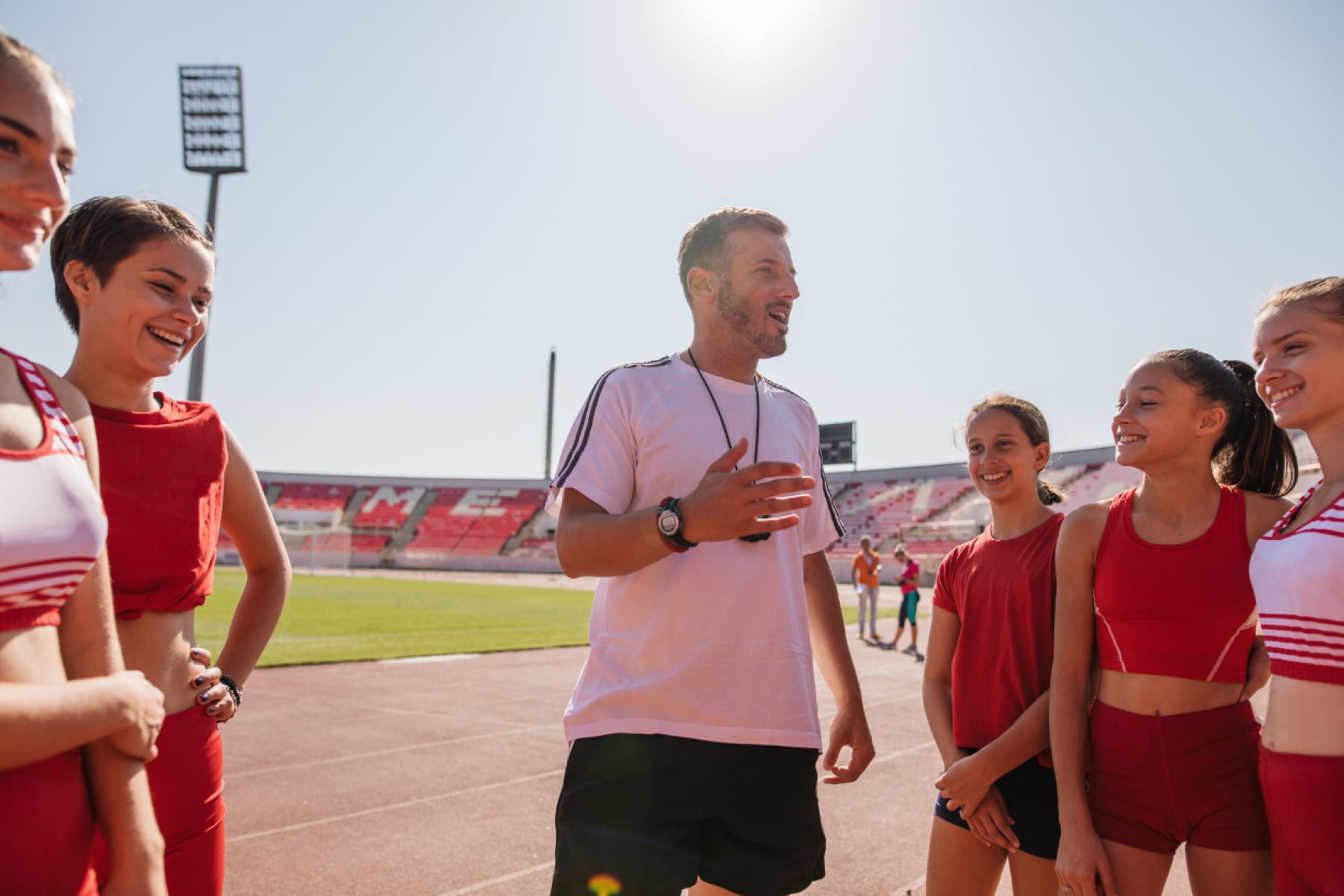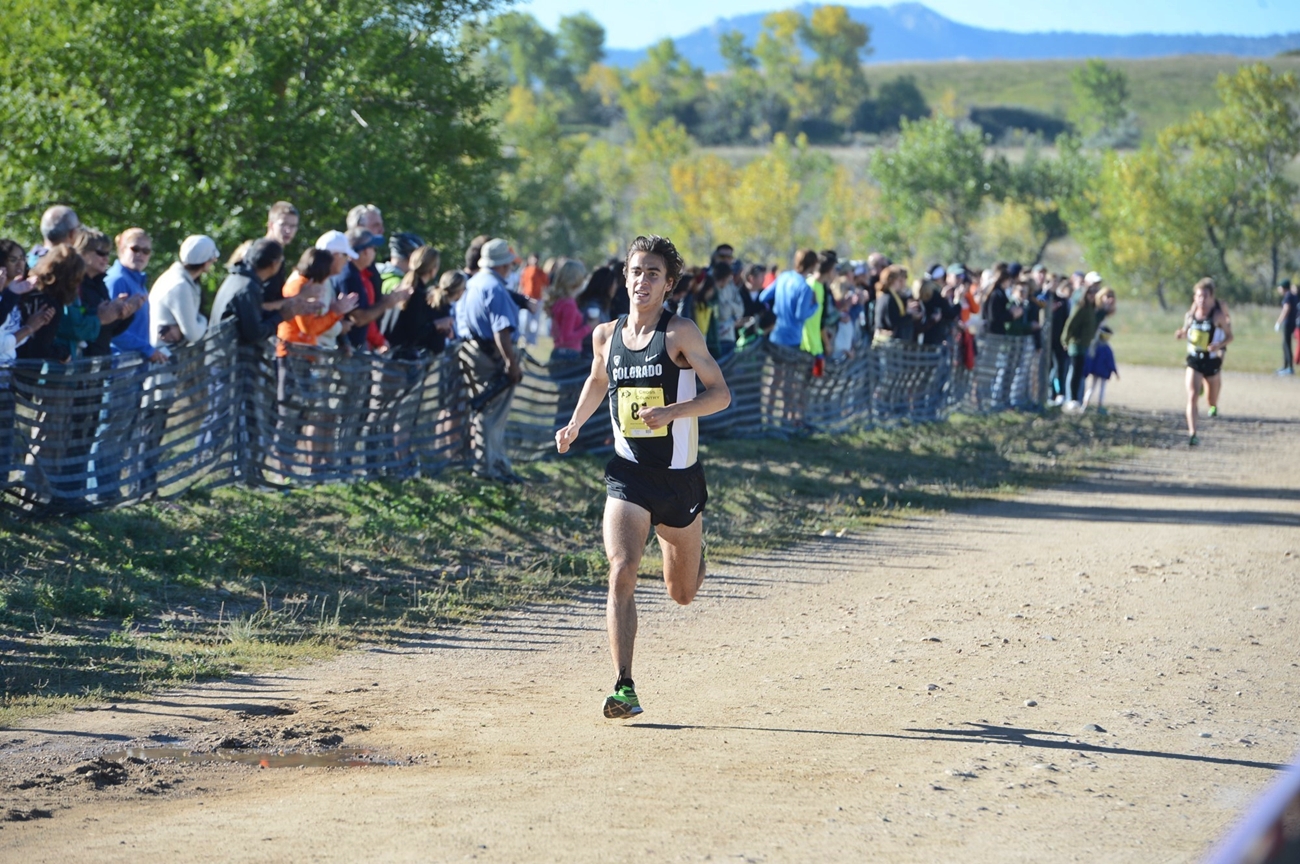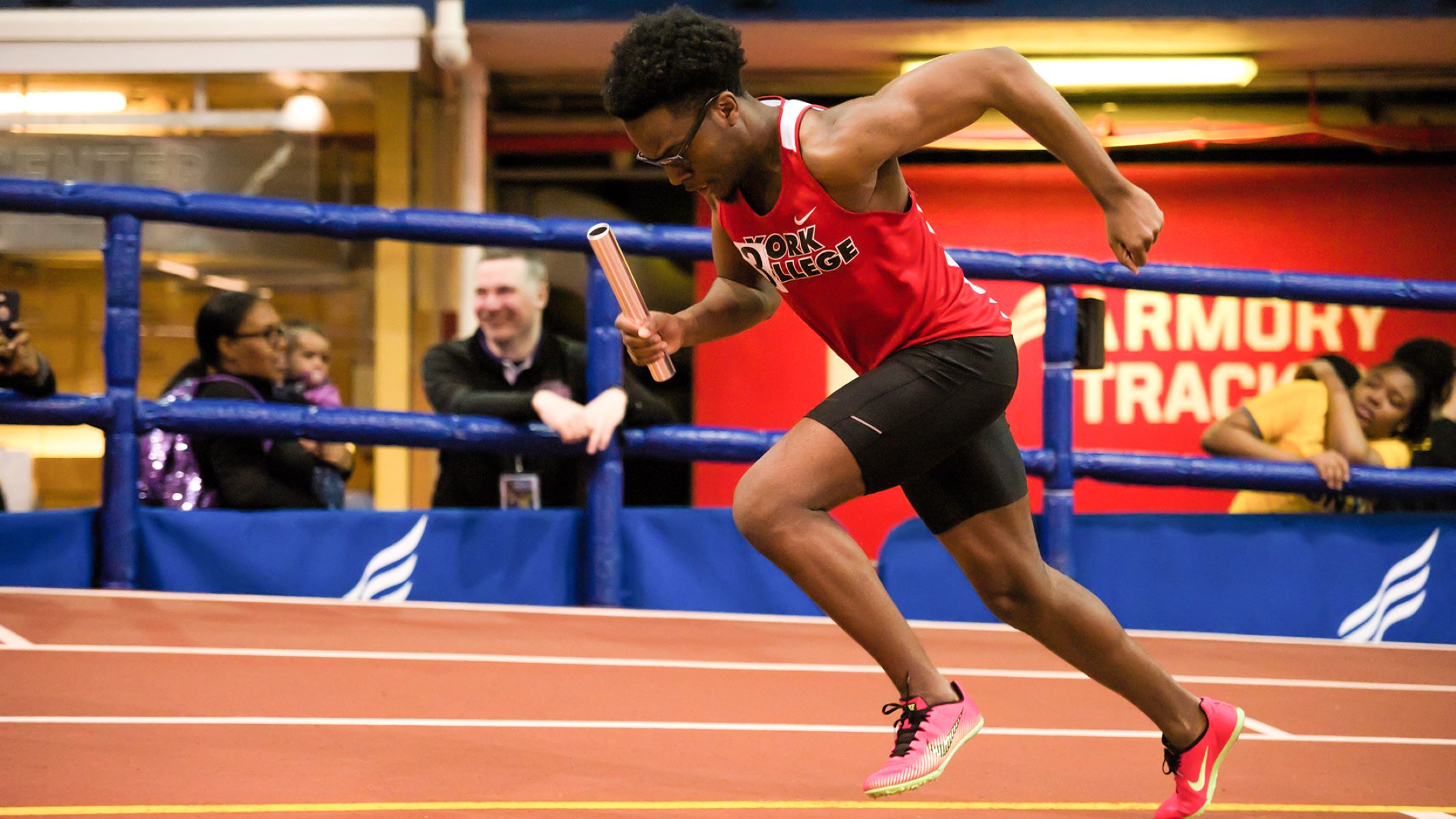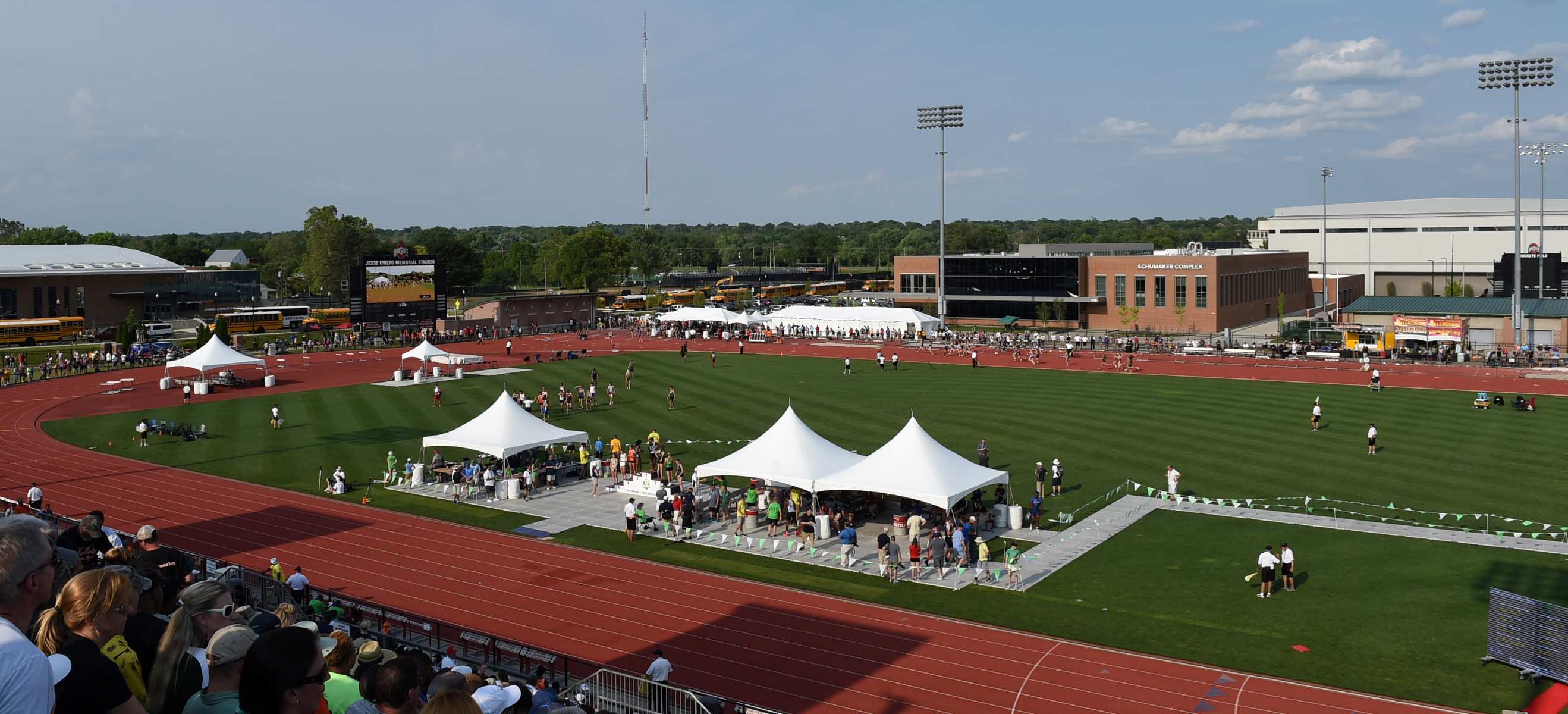Home>Misc>Featured>How To Get Recruited For College Cross Country
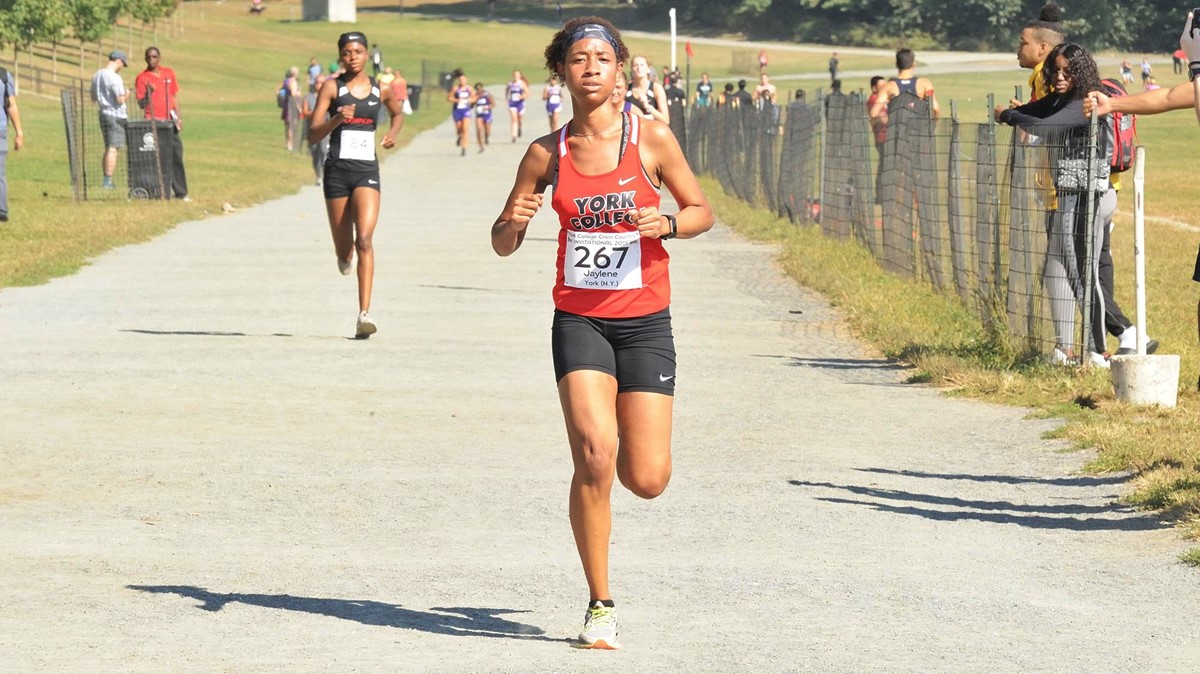

Featured
How To Get Recruited For College Cross Country
Modified: January 2, 2024
Want to get recruited for college cross country? Learn how to stand out with our featured guide and increase your chances of joining a college team.
Introduction
Welcome to the world of college cross country recruitment! If you are a talented runner with dreams of competing at the collegiate level, this article will guide you through the process of getting recruited for college cross country. College cross country is a highly competitive sport, and the recruiting process can be daunting. However, with the right approach and preparation, you can increase your chances of landing a spot on a college cross country team.
Before embarking on this exciting journey, it is important to understand that the college cross country recruiting process can vary from one school to another. Some colleges have more competitive programs and stringent requirements, while others may have more flexible criteria. It is crucial to be proactive, do your research, and be prepared to put in the effort required to showcase your talent and dedication to coaches.
In this article, we will break down the steps you need to take to maximize your chances of getting recruited for college cross country. We will explore how to navigate the recruitment process, build a strong running resume, identify potential colleges, and effectively communicate with coaches. Additionally, we will discuss the importance of official visits, maintaining communication with coaches, and staying committed to your training.
By following these steps and strategies, you will be equipped with the knowledge and tools necessary to stand out to college cross country coaches and increase your chances of securing a spot on a team. So, let’s dive in and begin your journey towards achieving your college cross country goals!
Step 1: Understand the Requirements and Process
The first step in getting recruited for college cross country is to understand the requirements and process involved. Each college and athletic program may have specific criteria and expectations for their recruits, so it is important to familiarize yourself with these details.
Start by researching the eligibility requirements set by the National Collegiate Athletic Association (NCAA) or any other governing body for college sports in your country. These requirements typically include academic benchmarks, such as a minimum GPA and SAT/ACT scores. Make sure you are aware of the eligibility criteria and any additional requirements specific to the cross country program.
Furthermore, it is crucial to understand the different recruiting periods and the rules surrounding them. The NCAA has specific guidelines regarding when college coaches can contact prospective student-athletes, when official visits can take place, and when scholarship offers can be made. Familiarize yourself with these recruiting periods to ensure you are aware of the timeline and can plan accordingly.
Additionally, take the time to research different college cross country programs to gain insights into the level of competition, training expectations, and team dynamics. Look for information about the coaching staff, their coaching philosophy, and the team’s past performance. This will help you determine which programs align with your running goals and personal preferences.
Understanding the requirements and process will give you a solid foundation as you navigate the recruitment journey. It will help you set realistic expectations and determine which colleges are within your reach based on your academic and athletic abilities. Take the time to gather information, ask questions, and seek advice from coaches, current college athletes, and trusted mentors to ensure you have a clear understanding of the recruiting process.
Remember, the college cross country recruiting process can be highly competitive, so it is crucial to stay organized, be proactive, and continuously educate yourself about the requirements and processes involved. With this knowledge, you can confidently move forward to the next step: building a strong running resume.
Step 2: Build a Strong Running Resume
Building a strong running resume is an essential step in getting recruited for college cross country. Your running resume serves as a snapshot of your athletic achievements, academic performance, and personal information that coaches will review when evaluating potential recruits. It is your opportunity to showcase your running abilities and stand out from other athletes.
When creating your running resume, include the following key elements:
- Athletic achievements: Highlight your running accomplishments, such as personal records, race results, and any awards or honors you have received. Include details about your cross country experience, track events, and notable performances. This section should demonstrate your talent, dedication, and progression as a runner.
- Academic information: Provide your GPA, standardized test scores (SAT/ACT), and any relevant academic achievements. Coaches want to recruit student-athletes who can excel both on the field and in the classroom. Demonstrating academic excellence shows your commitment to education and your ability to balance your athletic and academic responsibilities.
- Personal information: Include your contact information, height, weight, and any additional relevant details about yourself. This section provides coaches with a glimpse into your physical attributes and personal background.
- Coaching and training: List any coaches or training programs you have been a part of. This showcases your commitment to improving as a runner and highlights the guidance and expertise you have received along the way.
- Extracurricular activities: Include any leadership roles, community service, or involvement in other sports or activities outside of running. This demonstrates your well-roundedness and highlights your ability to manage multiple responsibilities.
When formatting your running resume, keep it concise, visually appealing, and easy to read. Use bullet points, headers, and bold text to organize information effectively. Consider seeking feedback from coaches or mentors to ensure your resume accurately represents your achievements and presents them in the best possible way.
Remember that coaches receive numerous resumes from aspiring student-athletes, so it is important to make yours stand out. Showcase your passion for running, highlight your achievements, and present yourself as an athlete who can contribute both athletically and academically to the college cross country program.
Building a strong running resume is a continuous process. Regularly update it with your most recent accomplishments and experiences. As you progress in your running career, continue to refine and improve your resume to reflect your growth and highlight your potential as a college cross country athlete.
Step 3: Research and Target Potential Colleges
Once you have a strong running resume in hand, the next step in the college cross-country recruitment process is to research and target potential colleges. Identifying the right colleges for you requires careful consideration of various factors, including athletic programs, academic offerings, location, campus size, and culture.
Start by making a list of colleges that align with your preferences and goals. Consider factors such as the competitiveness of their cross-country program, the level of competition within their conference, and the team’s recent success. Evaluate the coaching staff’s experience and coaching style to ensure they align with your own running philosophy and goals.
In addition to evaluating athletic programs, consider the academic opportunities offered by each institution. Look into the majors and academic resources available, as well as the overall academic reputation of the college. Balancing athletics and academics is critical to your success as a college athlete, so choose colleges that offer a strong academic foundation.
Think about your personal preferences as well. Consider factors like campus size, location, and the overall culture of the college. Some athletes thrive in a large university setting, while others prefer a smaller, more intimate campus. Take into account the climate, distance from home, and any other factors that may affect your overall college experience.
Once you have compiled a list of potential colleges, take the time to research each individual program extensively. Look for information on the team’s training philosophy, the support services they provide to student-athletes, and the track record of previous recruits. Take note of any notable alumni from the program and their achievements after college.
Reach out to current or former college athletes from those programs to gain insights into their experience and learn more about the culture of the team. They can provide valuable information about the daily life of a college cross-country athlete, the level of commitment required, and the support they received from coaches and teammates.
Remember, the goal is to find colleges that not only match your athletic abilities but also align with your academic and personal needs. Narrow down your list based on your preferences, and prioritize the colleges that offer a strong balance between academics and athletics.
Researching and targeting potential colleges is a vital step in the recruitment process. It will help you focus your efforts and ensure that you invest your time and energy in pursuing opportunities at colleges that are the right fit for you as a student-athlete. With a well-researched list in hand, you can move on to the next step of contacting coaches and attending college showcases.
Step 4: Contact Coaches and Attend College Showcases
Now that you have researched and identified potential colleges, the next step in the college cross-country recruitment process is to reach out to coaches and attend college showcases. This step is crucial in establishing connections, showcasing your skills, and getting noticed by college coaches.
Start by drafting a personalized email to each coach expressing your interest in their program. In the email, introduce yourself, provide a brief summary of your running accomplishments, and explain why you are interested in their college and cross-country program. Tailor each email to the specific college and coach to demonstrate your genuine interest and attention to detail. Be professional, polite, and enthusiastic in your email, and always proofread for any errors.
Include relevant details from your running resume, such as your personal records, race results, and any notable achievements. Mention specific races or performances that caught your attention and led you to research their program. Additionally, express your interest in visiting the campus and meeting with the coach to learn more about their program and training philosophy.
Once you have sent out your emails, follow up with the coaches to ensure they received your message. Some coaches may require additional information or schedule a phone call to discuss your interest further. Keep track of your communications with coaches, and be proactive in maintaining contact.
In addition to contacting coaches directly, attending college showcases and races can provide valuable opportunities to showcase your skills and connect with college coaches. College showcases are events where high school athletes compete and college coaches observe and evaluate talent. Research and identify showcases in your area or ones that attract colleges of interest.
Prepare for showcases by having a strong race performance. Dress professionally and arrive early to familiarize yourself with the course and warm up properly. During the race, give your best effort, compete with determination, and display good sportsmanship. Coaches will be observing not only your speed and endurance but also your attitude and character.
After the showcase, don’t hesitate to reach out to the coaches of the colleges you’re interested in to let them know about your performance and express your continued interest in their program. Personal connections and impressed coaches can play a significant role in their decision-making process.
Remember, establishing connections with coaches and attending college showcases are crucial steps in the recruitment process. These activities demonstrate your genuine interest, showcase your running abilities, and allow you to establish personal connections with coaches. By actively participating in these steps, you increase your chances of capturing the attention of college cross-country coaches and securing a spot on their team.
Step 5: Prepare for Official Visits and Interviews
As you progress in the college cross-country recruitment process, the next important step is to prepare for official visits and interviews. Official visits provide you with an opportunity to experience campus life, meet the team, and get a feel for the overall atmosphere of the college. Interviews allow you to further connect with the coach and demonstrate why you would be a valuable addition to their program.
Prior to your official visit, familiarize yourself with the college campus and the surrounding area. Research the academic programs, campus facilities, and any other aspects that are important to you. Make a list of questions to ask the coach, current athletes, and admissions staff during your visit to gain a comprehensive understanding of the college.
During your visit, be engaged, respectful, and attentive. Attend team practices, interact with current team members, and get a sense of the team dynamics. Ask questions about training, competition schedules, athlete support services, and academic support. Show genuine interest and enthusiasm for the program.
Make the most of your time with the coach by discussing their coaching philosophy, team goals, and expectations for athletes. Be prepared to talk about your own running journey, your aspirations, and how you see yourself contributing to the team. Share any questions or concerns you may have and listen actively to the coach’s responses.
In addition to the official visit, you may also have an interview with the coach. This interview allows you to further showcase your personality, commitment, and passion for cross-country. Be prepared to discuss your academic goals, time management skills, and ability to balance athletics and academics.
Prepare for interviews by practicing common interview questions, considering your answers, and reflecting on your experiences and achievements. Demonstrate your ability to be a team player, your strong work ethic, and your willingness to learn and grow as an athlete.
Remember to be yourself during both the official visit and the interview. Colleges are looking for athletes who not only have talent but also possess the qualities and values that align with their program. Use this opportunity to evaluate the program and determine if it is the right fit for you both athletically and academically.
Preparing for official visits and interviews is a critical step in the college cross-country recruitment process. It allows you to experience the college firsthand, connect with the coach and team members, and assess if the program aligns with your goals and values. By being prepared, engaged, and genuine, you can make a positive impression and increase your chances of securing a spot on the team.
Step 6: Maintain Communication with Coaches
Once you have taken the necessary steps to contact coaches, attend showcases, and go on official visits, it is crucial to maintain regular communication with the coaches of the college cross-country programs you are interested in. Consistent and proactive communication demonstrates your continued interest and dedication to the program.
Keep in mind that coaches often have busy schedules, so it is important to be respectful of their time. Find an appropriate balance between staying in touch and not overwhelming them with constant messages. Regularly update coaches on your running progress, academic achievements, and any recent race results or accolades.
Consider sharing your race calendar with coaches, so they have the opportunity to attend or follow your performances. This helps them stay informed about your progress and shows that you are committed to your running goals. Sharing insights into your training routine and any challenges you may be facing can also foster a strong coach-athlete relationship.
In addition to providing updates, maintain open lines of communication with coaches by asking them questions. Seek their guidance on training, race strategy, goal setting, and any other aspects related to your development as a runner. Showing your coach that you value their expertise and respect their opinions can strengthen your relationship and demonstrate your coachability.
Respond promptly to any emails or messages from coaches. Punctuality and responsiveness reflect your professionalism and commitment. Take the initiative to schedule phone calls or meetings to further discuss your interest in the program, address any questions or concerns, or simply have regular check-ins.
Remember that communication is a two-way street. Actively listen to coaches’ feedback and advice, and engage in meaningful conversations. Take notes during discussions, and follow up with thank-you emails to express your appreciation and reiterate your enthusiasm for the program.
Maintaining communication with coaches is especially important during the decision-making process. If you receive scholarship offers or have multiple program options, keep coaches informed about your progress and any decisions you make. Be respectful and considerate throughout this process, as coaches invest time and resources in recruiting you.
Ultimately, maintaining open and regular communication with college cross-country coaches demonstrates your commitment, professionalism, and genuine interest in their program. It enables you to establish a strong rapport with coaches and positions you favorably as a potential recruit.
As you navigate this step, remember to be proactive, responsive, and respectful. Regularly update coaches, seek their guidance, and actively engage in conversations. By doing so, you can continue to build strong relationships and increase your chances of securing a spot on their team.
Step 7: Stay Committed and Continue Training
As you navigate the college cross-country recruiting process, it is essential to stay committed to your running journey and continue training diligently. This final step is crucial in demonstrating your dedication, improvement, and potential as a college athlete.
First and foremost, prioritize your academics. Maintain a strong academic standing by staying focused in the classroom, meeting deadlines, and seeking academic support when needed. Coaches look for student-athletes who excel both athletically and academically, so ensure you fulfill your academic responsibilities.
Continue to push yourself in your training regimen. Work closely with your current coaches and trainers, and seek opportunities to improve your endurance, speed, and technique. Set specific goals for yourself and monitor your progress. Showcase your commitment to improvement by consistently challenging yourself and seeking ways to enhance your performance.
Participate in races and competitions regularly to gauge your progress and gain valuable experience in different racing scenarios. Use these races as opportunities to fine-tune your race strategy and mental fortitude. Regularly analyze your race performances to identify areas for improvement and make necessary adjustments to your training.
Seek opportunities to compete against strong competition, whether it be in local races or regional events. Exposure to higher levels of competition can help you gauge your abilities and develop the necessary skills to excel at the college level. Utilize these experiences to learn from others, refine your racing strategies, and showcase your potential to college coaches.
Stay disciplined and adhere to a well-rounded training routine. Focus not only on running but also on strength training, flexibility, and injury prevention. Taking care of your overall physical health and well-being will contribute to your long-term success as a college cross-country athlete.
Remember to seek advice and guidance from your coaches, mentors, and even current college athletes. They possess valuable insights and experience that can help you navigate the college cross-country journey. Be open to feedback, embrace challenges, and maintain a growth mindset as you strive for improvement.
Lastly, maintain a positive attitude and a strong work ethic. College coaches are not only looking for talented athletes but also individuals who are committed, coachable, and possess strong character. Demonstrate your dedication by consistently showing up to practices, embracing team dynamics, and being a supportive teammate.
Staying committed and continuing to train diligently throughout the college cross-country recruiting process is a testament to your passion, work ethic, and long-term goals. It showcases your potential as a college athlete and solidifies your position as a serious candidate in the eyes of college coaches.
Embrace the journey, be patient, and stay dedicated in your training. As long as you remain committed and focused, you will maximize your chances of achieving your goal of joining a college cross-country program that aligns with your aspirations and allows you to continue pursuing your passion for the sport.
Conclusion
Getting recruited for college cross country is an exciting and challenging journey. It requires a combination of hard work, preparation, and perseverance. By following the seven steps outlined in this article – understanding the requirements and process, building a strong running resume, researching and targeting potential colleges, contacting coaches and attending college showcases, preparing for official visits and interviews, maintaining communication with coaches, and staying committed and continuing training – you can increase your chances of getting recruited and achieving your goal of competing at the collegiate level.
Throughout the recruitment process, it is important to be proactive, stay organized, and demonstrate your passion for the sport. Research colleges extensively, reach out to coaches, showcase your athletic achievements, and maintain regular communication. Attend college showcases to gain exposure and connect with coaches. Prepare for official visits and interviews to make a positive impression and assess the overall fit of the program. Additionally, stay committed to your training, continuously strive for improvement, and balance your academic responsibilities.
Remember, the college cross country recruiting process can be competitive, and success is not guaranteed. However, by staying dedicated, being resilient in the face of setbacks, and embracing the process, you are positioning yourself for success. The recruitment process is an opportunity for personal growth, self-discovery, and achieving your dreams of competing at the college level.
As you embark on this journey, don’t forget to enjoy the experience and have fun along the way. Cherish the relationships you build with coaches, teammates, and mentors. Be proud of your achievements, no matter the outcome, and remain focused on pursuing both your athletic and academic goals.
With the right mindset, preparation, and determination, you can navigate the college cross country recruitment process with confidence and find a college program that aligns with your aspirations. Good luck in your pursuit of becoming a collegiate cross country runner!
